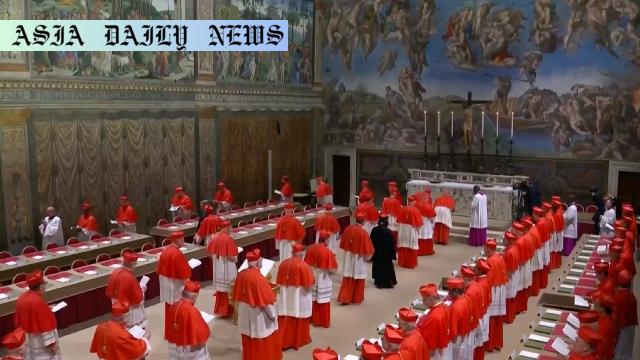Conclave continues as 133 cardinals resume voting to elect the next Pope at the Vatican, with keen global interest in the outcome.

The Historic Conclave Enters Day 2
The second day of the Roman Catholic Church’s conclave commenced with no clear decision on a new pope yet. A total of 133 cardinals from across the globe gathered in the Vatican’s Sistine Chapel to continue the sacred process of electing a successor to the late Pope Francis. Throughout the first day and morning of the second, black smoke billowed from the iconic Sistine Chapel chimney—a symbol to the waiting world that the required two-thirds majority for a new pope’s selection had not been achieved.
The Election Procedure and Its Spiritual Significance
The papal conclave follows centuries-old traditions of secrecy and prayerful reflection. The cardinals vote twice each in the morning and the afternoon, discussing behind closed doors the vast responsibilities required of the future leader of the Roman Catholic Church. With the reforms initiated by Pope Francis weighing heavily in the minds of many cardinals, discussions delve into issues of faith, leadership, and cultural inclusion.
The decision-making process during a conclave is an intense ritual. During each round of voting, ballots are written in Latin and later set aflame—producing either black or white smoke. Black indicates that the majority vote has not been reached, while white signals that the process has successfully resulted in a new pope’s election.
Global Anticipation and Observers at Saint Peter’s Square
The world waits anxiously for news as hundreds gather at Saint Peter’s Square, hoping to see the historic sign of white smoke. Among these observers is a woman visiting from the United States, who has expressed a desire to witness a resolution before she leaves for home. Across diverse regions, speculation builds regarding whether the new pope will be aligned with Francis’ vision for change or take the Church in a fresh direction. The choice of a new pope has also raised curiosity about the candidates’ backgrounds, as the Church increasingly grows its presence in Asia, Central and South America, and Africa.
Implications for the Future of the Catholic Church
The selection of a new pope comes at a pivotal moment for the Catholic Church. The pope is not only the spiritual leader of over 1.3 billion Catholics worldwide but also a key figure addressing global issues including poverty, climate change, and social justice. Pope Francis, known for his progressive stance on many matters, had initiated key reforms that shifted the Church’s approach to inclusivity, interfaith dialogue, and service to marginalized communities. It remains to be seen whether the chosen successor will continue this approach or embark on a new course for the Church’s future.
Commentary
The Importance of the Conclave’s Outcome
The election of a new pope is far more than a ceremonial tradition; it is a significant moment that will influence billions of lives. The cardinals face the daunting task of choosing a leader who embodies spiritual integrity and provides a guiding light for the faithful across the world. The conclave also reflects the Church’s growing diversity, with cardinals from regions historically underrepresented in previous elections now playing pivotal roles. It is a chance to embrace a leader who understands, supports, and directs the evolving needs of Catholics globally.
The Weight of Expectations on the Cardinals
The deliberations of the conclave are steeped in spiritual reflection, yet they are not detached from worldly realities. Cardinals must address urgent questions about the Church’s identity and direction in an increasingly polarized world. The legacy of Pope Francis is undeniable; his progressive steps have opened new dialogues in areas such as LGBTQ+ inclusion, women’s roles within the Church, and climate activism. As observers, we wonder whether the next pope will reinforce these transformative steps or redefine the Church’s priorities with a different vision.
Unity Amidst Global Challenges
In a time when global unity is desperately needed, the conclave is a reminder of the Church’s potential to provide moral and ethical clarity. From addressing economic inequality to fostering interfaith harmony, the chosen pope will have a critical role in shaping global discourse. It is moments like these when the Vatican proves not only its spiritual relevance but also its profound connection to the wider human experience.


